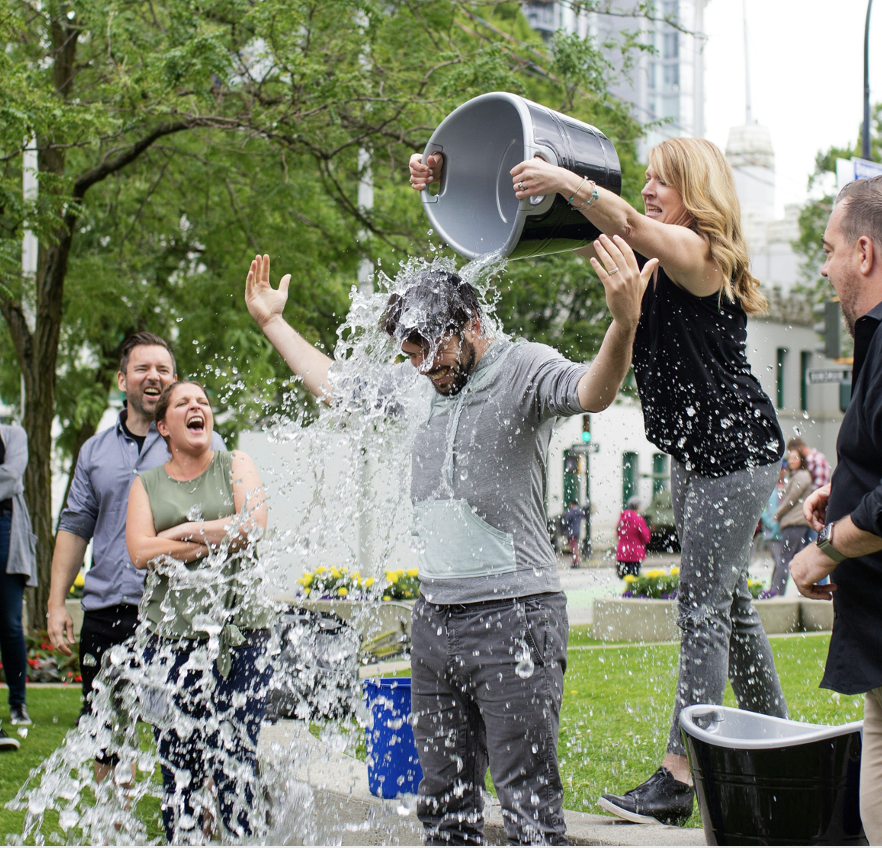On Saturday 21st September 2024 I delivered the following talk as part of TEDxAston University…
Nearly two-thirds of the global population now use social media, spending an average of 2 hours and 20 minutes on various platforms every day. Whether it’s checking LinkedIn for career opportunities, browsing Instagram for travel inspiration, or scrolling through TikTok for some light-hearted fun, we rely on different platforms to meet a range of needs— networking, shopping, entertainment and everything in between.
Did you start today with a scroll through social media?
Was it the last thing you did before going to bed last night?
There is something on social media for everyone, of every demographic and of every generation. Whether you want to message your friends, watch a how to video, or launch a new business.
Social Media has changed the world, and it’s changed us…platforms frequently come under scrutiny for amplifying societal issues—like the spread of misinformation, disinformation, and online harassment. Research into the impacts of social media on mental health shows a complex picture. Even those working in social media often share memes and jokes about the challenges they face, from garnering internal support to dealing with constant algorithm changes.
Social media can get a bad rap, but we should remember the good it can do.
However you view it, social media has fundamentally transformed how we connect, discover, and consume information. From personal conversations to breaking news, it’s our go-to for staying informed, finding answers, and engaging with the world. It’s also become a vital tool for professionals, helping us network, find jobs, and grow businesses in ways that were never before possible.
How many of you have a mobile within arm’s reach right now? Social media’s presence on the devices we carry in our pockets has transformed how we interact with the world.
When we post something on social media, we await a reaction. A well-written social media post should be crafted to create engagement – a like, a comment, a share, a direct message.
And, when you post something on social media, it’s not just seen by your immediate followers. If they engage with it—by liking, sharing, or commenting—it reaches their followers, and then their followers’ followers, creating a ripple effect that extends far beyond the original audience.
Social media has changed the world… and us… so lets change it… let’s become the agents of change.
Let me share a few of the reasons why I love what social media can do in the world.
Because positive change can happen
This summer marked the 10th anniversary of the ice bucket challenge – a global fundraising phenomenon that accelerated ground-breaking research, care and support.
It started with a simple idea—pour a bucket of ice water over your head, share the video on social media, and challenge others to do the same while donating to ALS research.
The ripple effect turned a quirky challenge into a global movement, raising over $115 million for ALS research. Do you remember nervously waiting for that tag to take your turn?
In 2020, the Black Lives Matter movement gained unprecedented momentum through social media. The hashtag #BlackLivesMatter created ripples that spanned the globe, mobilizing millions to march, protest, and demand change. Social media platforms not only spread the message but also fostered conversations, education, and solidarity on a global scale.
The rise of social media has created job roles that barely existed a decade ago. When I started my career in marketing, it didn’t exist.
Now, more than 50 million people worldwide identify as content creators, with over 2 million earning a full-time income from platforms like YouTube, Instagram, and TikTok. Globally, influencer marketing was valued at $21.1 billion in 2023, more than tripling since 2019, and brands are increasingly shifting their marketing budgets to partner with influencers and creators as part of their activities.
Social media often serves as the first point of contact between brands and customers, with consumers using platforms like X (formerly Twitter) and Facebook for support. Brands that actively respond to inquiries, on social media experience higher levels of customer loyalty and trust.
Brands can show their human side on social media, and there are many examples of individuals who are building personal brands through posting engaging content online.
So, with all these positive examples, why is it that social media often seems so prone to negativity?
The following psychological and behavioural concepts shed light on why negative behaviour thrives on these platforms, and I have some tips on how we can counteract it by becoming responsible social media users. By becoming agents of change.
- Negativity Bias: One of the primary reasons is a concept known as negativity bias. This psychological theory suggests that humans are more likely to notice and remember negative information than positive information. On social media, this means that negative posts, comments, and news stories often attract more attention and engagement. As agents of change, instead of engaging with negative posts, we could focus our efforts on finding and sharing the positive stories. I once met an amazing CEO who spent his time congratulating and praising his staff when they shared business stories on LinkedIn. My own takeaway was that I really wanted to work for him, and I know that his social media posts became an internal talking point, supporting staff engagement and retention.
- Dopamine and Reward Systems: Research has shown that social media interactions can trigger the release of dopamine, a neurotransmitter associated with pleasure and reward. Negative or controversial content often generates strong emotional reactions, leading to more comments, shares, and likes. This increased engagement reinforces the behaviour, making it more likely for users to post similar content in the future. Let’s focus on rewarding positive interactions and amplifying stories of kindness. Let’s create and join communities around shared interests and causes that are supportive, rather than destructive. Let’s get our dopamine hits from being helpful to others. For example, there’s a wonderful Facebook Group of parents sharing all their woes around their child going to university – it’s so supportive from answering open day questions through to exam results day nerves and the process of moving into halls.
- Echo Chambers and Confirmation Bias: Social media platforms use algorithms to show users content that aligns with their interests and behaviours. This can create so-called echo chambers, where individuals are exposed to information that confirms their existing views, like hearing an echo of their own voice. When we come across opposing viewpoints, it can lead to more heated and negative interactions. On top of that, confirmation bias kicks in—we’re naturally drawn to information that supports our existing views and tend to ignore or dismiss anything that contradicts them. As an agent of change, I ask you to actively seek out credible sources that challenge your perspectives. Fact checking resources and credible news sources are tools we can use to ensure we’re spreading truth, not rumours. Expand your content consumption beyond your echo chamber. Increase your inputs. Actively seek out different accounts to follow, and learn from them. I did this recently and it’s made such a difference to my world view.
- Anonymity and Reduced Accountability: The relative anonymity of social media can also contribute to negative behaviour. When people feel less accountable for their actions, they may be more likely to express hostility or engage in aggressive behaviour. This phenomenon, known as the online disinhibition effect, can lead to interactions that are far more negative than those that would occur face-to-face. Hold yourself and others accountable for online behaviour. When you see toxic behaviour, don’t feed it. Address it calmly if you feel comfortable doing so.
- Social Comparison and Envy: Social media often portrays an idealised version of people’s lives, leading to social comparison and feelings of envy. When individuals compare their own lives to the seemingly perfect lives of others, it can result in negative emotions and attitudes.Let’s be OK with promoting authenticity and vulnerability on social media. Sharing real stories, highlighting struggles as well as successes, and supporting others when they do the same.
Let’s not forget, the social media platforms themselves are taking steps to address these challenges. They do have fact checking systems in place. They do have features for checking authenticity, particularly alongside the growing use of AI. But it’s a big task.
Governments are also taking steps to support online safety. But we, as users of social media, have responsibilities too.
By taking active steps to raise awareness, foster community, combat misinformation, encourage accountability, and promote authenticity, we can counteract the toxicity that all too often dominates social media. We can all use our social media presence to advocate for positive change, whether it’s through public posts, comments, or direct messages.
Can you imagine a world now without social media.
A world without devices in our pockets that connect us.
Important issues might remain in the shadows, voices of marginalized communities might go unheard, and small businesses might struggle to reach and engage with their customers.
Social media bridges these gaps, giving everyone an opportunity learn, to be heard and to make a difference.
Let’s harness that power, create a ripple effect, be agents for change, responsible users, and make social media a force for good in the world.

